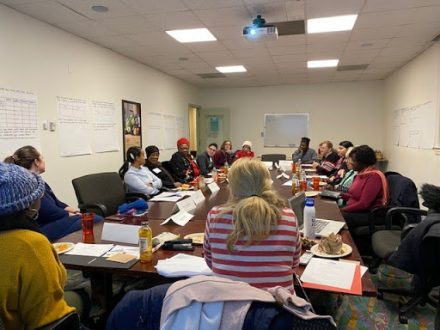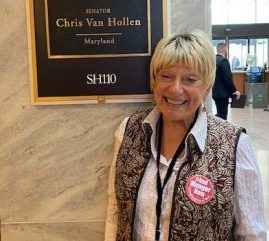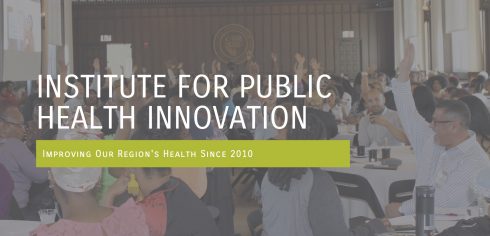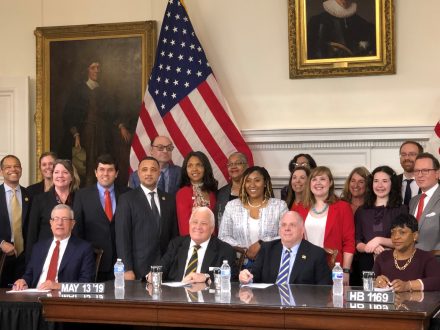Residents Advocate for a Sustainable and Equitable Local Food System

Since its founding in 2019, the Montgomery County Food Council’s Community Advisory Board (FSCAB) has been a vessel for engaging the voices of county residents who are currently, or have in the past, experienced food insecurity. Members help to support the Montgomery County Food Council’s mission to create a robust, sustainable, equitable local food system.
The FSCAB allows members to provide their insight and feedback on the implementation of the county’s Food Security Plan, which outlines strategies and recommendations to reduce the number of food insecure residents in the county. In addition to participating in skills-building trainings on topics such as community engagement and advocacy, FSCAB members share their perspectives on food access barriers as well as develop policies and action items to fight hunger in their communities.
|

Being a part of the Advisory Board allows us to help people in our community who are low income–many of whom represent racial and ethnic minorities–as well as individuals with physical and mental disabilities, college students and so many more.”
–Rhona Reiss, Community Advisory Board Member
|
Board members, such as founding member and passionate mental health advocate Rhona Reiss, draw on their lived experience to guide the implementation of the Plan’s recommendations by the Food Council and its partners. “As a food pantry recipient, I saw a need for healthier food options for our community. After expressing these concerns to the Food Council as a board member, I immediately saw greater integration of fresh fruits and vegetables,” said Reiss.
In addition to suggesting that the food banks provide more nutritious foods, Rhona has also advocated that prepared foods be available. At present, a SNAP recipient is unable to use food stamps to purchase prepared foods at the supermarkets or grocery stores. This means that a person with a physical, cognitive, or mental challenge cannot get a rotisserie chicken or a cooked pizza, and many of the food banks do not provide prepared foods.
Rhona believes that this regulation discriminates against people with disabilities, many of whom are unable to assemble a meal from raw ingredients. “Many seniors are in this category. Persons with cognitive and mental challenges are often unable to organize the preparation of a meal. It would be so much easier for these folks to use their benefits for prepared foods,” said Reiss.
The Community Advisory Board, composed of 13 residents from around Montgomery County engages in a variety of activities. Last year members received a community engagement training from IMPACT Silver Spring and an advocacy training from the Office of Community Partnerships. This year, members have met with county council members, state, and federal legislators as part of a Maryland anti-hunger delegation and testified on a SNAP bill in Annapolis.
The Montgomery County Food Council is currently funded by the Healthy Montgomery Transforming Communities Initiative. For more information about the Community Advisory Board or to support with a donation click here.
About the Transforming Communities Initiative
The Healthy Montgomery Transforming Communities Initiative (TCI) is a partnership between the Institute for Public Health Innovation (IPHI), Trinity Health affiliate Holy Cross Health, the Montgomery County Department of Health and Human Services, and numerous other government and community partners. Montgomery County, Maryland is one of eight locations selected by Trinity Health for investment through their national TCI grant program.
TCI is an innovative, collaborative funding initiative established by Trinity Health, one of the largest multi-institutional Catholic health care delivery systems in the nation. Grant recipients, in collaboration with a community coalition(s), implement and support evidence-based and innovative policy, systems and environmental change strategies to reduce obesity, promote tobacco-free living and address social influencers of health. TCI leverages health system funding, community partnerships, local match dollars, capital loan dollars, and national technical assistance resources to improve community health.






 We did it! After months of hard work from the
We did it! After months of hard work from the